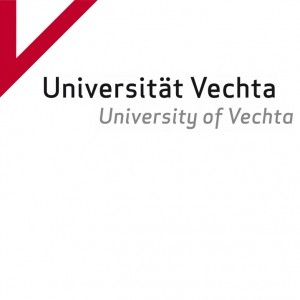Photos of university / #cambridgeuniversity
Globalisation, environmental economics, conservation and ecology, climate change, glaciation, the future of developing regions, cultural differences – just some of the topics you can study on the Cambridge Geography course.
A wider world
All societies rely on relationships with each other and the physical environment. Increasingly these are fragile interdependences presenting intellectual and practical challenges. Our Geography course tackles these issues from a broad base, but also allows you to specialise.
Facilities and resources
We have one of the UK’s largest geography libraries, containing around 20,000 books, journals and periodicals, and the Scott Polar Research Institute is an integral part of the Department. There are extensive computing resources, where you receive formal teaching in geographical information technology including geographical information systems and remote sensing, and the Department’s intranet provides further online resources.
Fieldwork and travel
Fieldwork is an important part of our course and there are several one-day excursions and field trips in Years 1 and 2. A compulsory field class in Year 2 leads to a piece of assessed practical work. Recent locations include Switzerland, Ireland, Germany, Morocco and Spain. Some financial help is available but students are required to contribute to the cost of field trips.Your Part II dissertation requires basic research, usually carried out in the summer vacation at the end of your second year. Dissertation subjects and locations vary widely: some students travel abroad, others stay in the British Isles.
Many students organise their own overseas expeditions, often with the University Expeditions Society. Some Department and College travel awards are available for this.
Additional course costs
Year 1
- Required: a University approved scientific calculator - Estimated cost £20
- Strongly recommended: waterproof clothing and walking boots for fieldwork
Year 2
- Required: residential field class (some Colleges may be able to offer financial support) - Estimated cost £150-200
- Required: data collection during the summer between Years 2 and 3 in preparation for Year 3 dissertation – costs variable depending on dissertation topic and data collection location (UK or overseas)
- Optional: dependent on dissertation topic, fieldwork may be required - Cost dependent on topic
Careers
While Geography isn’t directly a ‘vocational’ degree, Cambridge Geography graduates are trained to deal with multivariate problems, are skilled in information retrieval, data management and computing, and are used to working on their own initiative, and as such are highly employable in a variety of professions.
Our graduates enter many different careers, including industry and commerce, charities, planning, teaching, finance, social and community work, environmental management and conservation, the media, politics, and the Civil Service. Positions currently held by graduates include entrepreneurs in international companies, analysts for major organisations (eg the International Organisation for Migration, the Royal Institute), House of Commons researchers and news journalists.
You typically have six to eight lectures each week (with associated reading). In addition, you normally have three supervisions a fortnight at which you discuss a topic, usually following preparatory reading and essay writing.
In the first and second years, you also have laboratory or practical classes, and field classes.
Year 1 (Part IA)
You’re introduced to key themes and issues by studying two core papers:
- Human Geography – topics include globalisation; Fordism and welfare; ecological, economic and political perspectives on resource users
- Physical Geography – topics include tectonics and volcanism, coastal and glacial processes, Quaternary climate change and biogeography, atmosphere and climate
You’re assessed at the end of the year by one written examination for each paper.
You also take the Geographical Skills and Methods paper that covers numerical methods; survey techniques; documentary and archival data; spatial data; and field, laboratory and desk-based skills.
Year 2 (Part IB)
All students take a core Geographical Ideas and Themes paper relating to global change, which is assessed through both coursework and written examination.
In addition, you can begin to specialise and select three papers from a choice of six, which are also assessed by a combination of coursework and examination. Each year, three human geography papers and three physical and environmental geography papers are available. The lists below give examples of Part IB papers that may be offered.
Human geography
- Austerity and Affluence
- Development Theories, Policies and Practices
- Citizenship, Cities and Civil Society
Physical and environmental geography
- Glacial Processes
- Biogeography
- Environmental Systems and Processes: Remote Sensing
Building on Part IA Skills and Methods, you also undertake project work involving a range of field, laboratory and computer skills and techniques.
You participate in a one-week residential field class that contributes to your final year dissertation research by inspiring your choice of topic and developing specific field research skills. Following the field class, you submit a report on it and a dissertation proposal as part of your second-year assessment, along with statistics/spatial data analysis coursework and written examinations.
Year 3 (Part II)
You can either specialise further or maintain a balance across the subject as a whole. You select four papers from 12, which are assessed by either written examination or by a combination of written examination and coursework. Papers on offer vary each year but recent examples include:
- The Geographies of Global Urbanism
- Political Ecology in the Global South
- Geographies of Discipline and Social Regulation
- Biosedimentary Coastal Systems
- Biogeography
- Glaciology
- The Political Geography of Postcolonialism
- Geographies of the Arctic
- Changing Cultures of Risk
- Volcanology
- Political Appetites: Geographies of Food and Power
You also write a dissertation of 10,000 words on a topic of your choice, which you start work on during the summer vacation between your second and third years. The topic must be defined by the second term of Year 2 and the proposal is assessed as part of your second-year coursework.
- All applicants to the University of Cambridge must submit an application to UCAS (the Universities and Colleges Admissions Service) by the relevant deadline.
- The Attestat o (polnom) Srednem Obshchem Obrazovanii (Certificate of Secondary Education) is not considered to be suitable preparation for a competitive application to the University of Cambridge. We strongly recommend that you undertake further study if you wish to apply for an undergraduate degree. Examples of the qualifications that would be considered suitable for admission to Cambridge are A Levels, the International Baccalaureate (IB), five or more Advanced Placement (AP) courses, or possibly the first year of an undergraduate degree at a university outside the UK. We recommend that you contact the College that you wish to apply to directly for further advice and guidance.
- IELTS – normally a minimum overall grade of 7.5, usually with 7.0 or above in each element.
- Cambridge English: Advanced – grade A or B.
- Cambridge English: Proficiency – grade A, B or C.
All applicants are required to take the pre-interview written assessment for Geography at an authorised centre local to them (for a lot of applicants, this will be their school/college).
Assessment format
- Section 1: Thinking Skills Assessment (CT/PS) and Reading Comprehension (80 minutes)
- Section 2: Essay/text response (40 minutes)
Funding for Geography undergraduate programmes at the University of Cambridge is primarily provided through a combination of scholarships, bursaries, and student loans. The University offers a range of scholarship schemes aimed at both UK and international students, which can significantly offset tuition fees and living costs. For UK students, the Cambridge Bursary Scheme provides financial support based on household income, with some students receiving up to several thousand pounds annually. International students are eligible to apply for various external scholarships and funding options, including those offered by government agencies and private foundations.
In addition to scholarships, students can access government-backed loans such as the Student Loans Company (SLC) in the UK, which offers loans to cover tuition fees and maintenance costs. The availability and terms of these loans depend on the student's nationality and residency status. The University also provides grants and hardship funds to support students facing unforeseen financial difficulties, ensuring that financial barriers do not impede access to the programme.
Part-time employment during studies is another common form of financial support, with Cambridge's job placement services helping students find part-time roles both on and off campus. Some students also receive funding through research assistantships and Teaching Assistant positions, which provide stipends and valuable academic experience.
Furthermore, students can explore external funding sources including research councils, international scholarships, and industry sponsorships, which sometimes include placements or internship opportunities linked to the Geography course. For those undertaking their honours or advanced studies, there are specific grants and research funding opportunities that support fieldwork, data collection, and conference travel. Overall, the University of Cambridge’s comprehensive funding framework aims to support students financially throughout their studies, facilitating access to high-quality education in Geography regardless of financial background.
Your living expenses may be higher than for a Home student (eg if you stay in Cambridge/the UK during vacations). The minimum resources needed in Cambridge for the year (excluding tuition and College fees) are estimated to be approximately £10,080 in 2017-18 and £10,310 in 2018-19, depending on lifestyle (you should allow for increases in future years).










